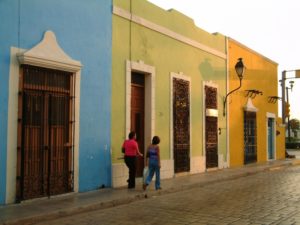Integration and Wholism: We are personally committed to complete obedience to all that Jesus commanded including compassion for the physical needs of people as well as their emotional, mental and spiritual needs. We recognize an integral relationship between the physical, mental, social, and spiritual. Our programs seek the total development of the whole person and community.
Commitment to the Poor and Marginalized: Jesus came to preach good news to the poor. As his Ambassadors, we are committed to the poor and marginalized. We affirm their worth, call them to be children of God and seek to release them from brokenness and despair. While we might want them to follow Jesus, our call is to love and walk with them as they are and let them respond as called.
Long Term Solutions: We concentrate our efforts on long term solutions that break the cycle of poverty and disease. We train, equip, and empower people to do for themselves. We focus on development rather than relief, and disease prevention rather than cure.
Identifying and Using Neighborhood Assets: It is critical to build on assets that are already found in the community and then mobilizing individuals, associations and institutions to come together to build on their assets and not concentrate on the communities needs. Each individual and association have hidden assets that are waiting to be tapped and used. In the Entering the Community phase an extensive amount of time is spent in identifying the assets of individuals, associations and institutions especially in an urban setting where we are trying to identify sub-groups in which to form small sub-communities built around the peoples interests.
Releasing Neighboring to Help Neighbors: In the past when a person had a need they went to their neighborhood for assistance. But this has shifted today to the belief that the neighbor does not have the skills to help them, therefore we must go to a professional for assistance.
The Welfare system today works in such a way that professionals have made clients and recipients of the poor, robbing them of the support from their neighbors who now think that they are not skilled enough to help. This leads to isolation of the individuals. The poor begin to see themselves as people with special needs that can only be met by outsiders. But this is changed through reawakening the idea that it is critical for neighbors assisting each other.
Local Ownership and Initiative: Sustainable programs are owned by the people and built on local initiative. Ownership and initiative is demonstrated through volunteerism and strengthened through capacity building. We take time in communities to participate with them in assessing their needs, identifying resources, and assisting them in organizing for action through training and consultation.
Participatory Learning: We believe that people must be active participants in their own development. Therefore, we use methods for adult learning that engage participants in a process of reflection and action. We also believe that people learn by doing, and that modeling is essential.
Multiplication and Movements: Our aim is not merely projects, but movements. This is facilitated by training people to train others using concepts that are transferable. We emphasize the use of local resources and appropriate technologies so that solutions can be passed along neighbor to neighbor. We build cooperation and vision at a community level. We work collaboratively with faith and community based organizations, local and international relief and development agencies, churches and missions, as well as governments to facilitate the transformation of communities and nations.
Contextualization: Our programs will be adapted to local needs and requirements as identified by the local community.

Christian Servant Leadership: Jesus is our model. We seek to imitate him in humility and love. Jesus taught that the greatest in the kingdom is the servant of all. Every leader in our organization seeks to follow this. We seek to model servant leadership in our organization and programs, and to raise up leaders in every community who give sacrificially to serve the needs of the people.
